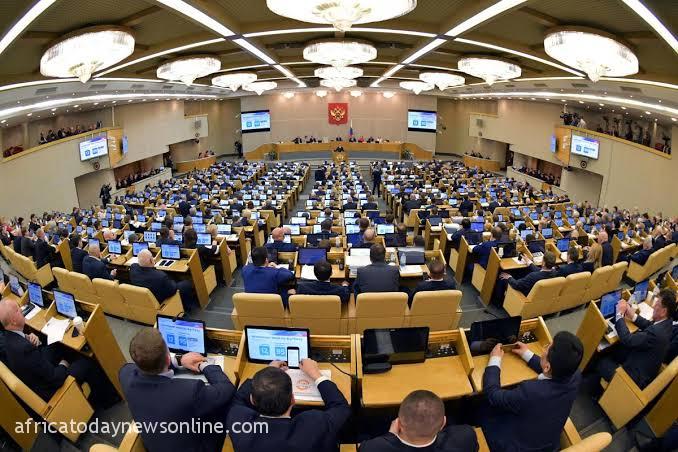Russians could face prison sentences of up to 15 years in prison for spreading ‘fake’ information that goes against the Russian government’s position on the war in Ukraine, a move that comes on the heels of the blocking of access to foreign media outlets by authorities.
Africa Today News, New York reports that the Russian parliament voted unanimously on Friday to approve a draft law which has now criminalised the intentional spreading of what Russia deems to be ‘fake’ reports.
Russian authorities have repeatedly decried reports of Russian military setbacks or civilian deaths in Ukraine as ‘fake’ reports. State media outlets refer to Russia’s invasion of Ukraine as a ‘special military operation’ rather than a ‘war’ or ‘invasion’.
The draft law was approved by the lower and upper houses of parliament in quick succession, state news agencies said.
It could be signed into law by President Vladimir Putin and take effect as soon as Saturday, the speaker of the lower house, Vyacheslav Volodin, said.
‘It is possible that by tomorrow, its rules will force those lied and made statements discrediting our armed forces to bear very grave punishment,’ Volodin said.
Read Also: First Batch Of Nigerians From Ukraine Arrives Abuja
‘I want everyone to understand, and for society to understand, that we are doing this to protect our soldiers and officers, and to protect the truth.’
Africa Daily News, New York gathered that sentences of up to three years or fines are envisaged for spreading what authorities deem to be false news about the military, but the maximum punishment rises to 15 years for cases deemed to have led to ‘severe consequences’, the lower house of parliament said.
After the bill was passed, Russia’s Novaya Gazeta newspaper, whose editor Dmitry Muratov was a co-winner of last year’s Nobel Peace Prize, said it would remove material on Russia’s military actions in Ukraine from its website because of censorship.
The newspaper said it would continue to report on the consequences that Russia is facing, including a deepening economic crisis and the persecution of dissidents.
AFRICA TODAY NEWS, NEW YORK

